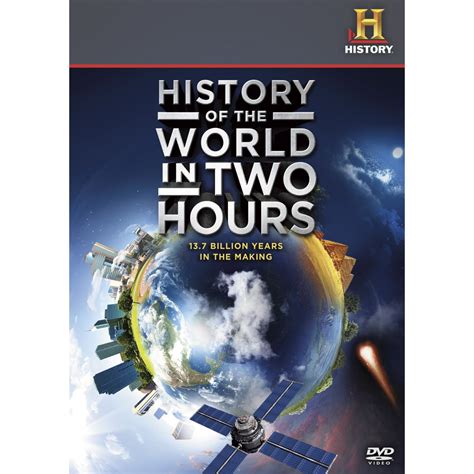In the grand scheme of human history, two hours is but a fleeting moment. Yet, within this brief span of time, we can trace the remarkable journey of our species from humble beginnings to the cusp of the modern era.

Ancient Civilizations: The Dawn of Civilization
Around 3,500 BCE, the first civilizations emerged along the banks of major rivers such as the Nile, Tigris, Euphrates, Indus, and Yellow River. These early civilizations, including ancient Egypt, Mesopotamia, India, and China, laid the foundation for human progress and innovation.
- Ancient Egypt: Known for its iconic pyramids, hieroglyphic writing, and advanced mathematics.
- Mesopotamia: Home to the world’s first cities, cuneiform script, and the Code of Hammurabi.
- India: The birthplace of Hinduism, Buddhism, and the Indus Valley Civilization.
- China: The cradle of the Xia, Shang, and Zhou dynasties, renowned for their bronzeware, silk production, and gunpowder invention.
Classical Greece and Rome: The Age of Philosophy and Empire
From the 5th century BCE onwards, Greece emerged as a center of intellectual and philosophical inquiry. The works of Plato, Aristotle, and Socrates shaped Western thought for centuries to come.
In the 1st century BCE, Rome rose to prominence, eventually becoming a powerful empire that spanned much of Europe, North Africa, and the Middle East. Roman law, infrastructure, and culture left an enduring legacy on the world.
Middle Ages: A Time of Conflict and Faith
The fall of the Western Roman Empire in 476 CE ushered in the Middle Ages, a period marked by political instability, religious conflict, and the rise of feudalism.
The Islamic Golden Age (7th-13th centuries) witnessed significant scientific, cultural, and economic advancements in the Middle East.
Renaissance and Reformation: The Rebirth of Humanism
In the 14th and 15th centuries, Europe experienced a period of intellectual and artistic revival known as the Renaissance. The rediscovery of classical texts inspired a renewed interest in humanism and individualism.
The Protestant Reformation, led by Martin Luther in the 16th century, challenged the authority of the Catholic Church and sparked religious wars throughout Europe.
Age of Exploration: A Quest for Knowledge and Wealth
The 15th and 16th centuries saw European explorers embark on expeditions to discover new lands and trade routes. Christopher Columbus’s voyage in 1492 marked the beginning of the Age of Exploration.
European colonization and the transatlantic slave trade had a profound impact on the Americas, Africa, and Asia.
Industrial Revolution and Beyond: The Rise of Modernity
The Industrial Revolution, beginning in the 18th century, transformed the world through technological advancements, mass production, and the emergence of capitalism.
The 19th and 20th centuries witnessed the rise of nationalism, imperialism, and two world wars. The 21st century has brought about globalization, the rise of the internet, and ongoing challenges such as climate change.
Key Epochs and Events
| Epoch | Time Period | Key Events |
|---|---|---|
| Ancient Civilizations | 3,500-500 BCE | Rise of early civilizations in Egypt, Mesopotamia, India, and China |
| Classical Greece and Rome | 5th century BCE-5th century CE | Philosophical inquiry in Greece; Roman Empire’s rise and fall |
| Middle Ages | 5th-15th centuries | Political instability, religious conflict, feudalism, Islamic Golden Age |
| Renaissance and Reformation | 14th-16th centuries | Rediscovery of classical texts, Protestant Reformation |
| Age of Exploration | 15th-16th centuries | European voyages to discover new lands, colonization, slave trade |
| Industrial Revolution and Beyond | 18th century onwards | Technological advancements, mass production, capitalism, nationalism, imperialism |
Major Empires and Civilizations
| Empire/Civilization | Time Period | Geographical Reach |
|---|---|---|
| Ancient Egypt | 3,100-30 BCE | Nile Valley |
| Mesopotamia | 4,000-539 BCE | Tigris and Euphrates River valleys |
| Roman Empire | 27 BCE-476 CE | Europe, North Africa, Middle East |
| Islamic Empire | 7th-13th centuries | North Africa, Middle East, Iberian Peninsula |
| Mongol Empire | 13th-14th centuries | Asia, Eastern Europe |
| British Empire | 16th-20th centuries | Global |
| United States | 18th century onwards | North America, Pacific Islands, global influence |
Major Inventions and Discoveries
| Invention/Discovery | Date | Significance |
|---|---|---|
| Wheel | 3,500 BCE | Transportation, agriculture |
| Writing | 3,500 BCE | Communication, record-keeping |
| Compass | 11th century | Navigation |
| Printing press | 15th century | Mass production of books, spread of knowledge |
| Steam engine | 18th century | Industrial Revolution |
| Telephone | 19th century | Communication |
| Computer | 20th century | Information technology, global connectivity |
Challenges and Opportunities
| Challenge | Opportunity |
|---|---|
| Climate change | Clean energy development, sustainable practices |
| Inequality | Social welfare programs, economic empowerment |
| Conflict and terrorism | Peacemaking, diplomacy, countering extremism |
| Population growth | Food security, urbanization planning |
| Technological disruption | Job creation, innovation, education |
As we conclude our journey through the history of the world in two hours, we can marvel at the remarkable resilience and ingenuity of our species. From humble beginnings, we have ascended to the heights of scientific and technological advancement.
Yet, our journey is far from over. As we face the challenges of the present and anticipate the opportunities of the future, may we draw inspiration from the lessons learned and the enduring spirit that has guided us throughout history.
